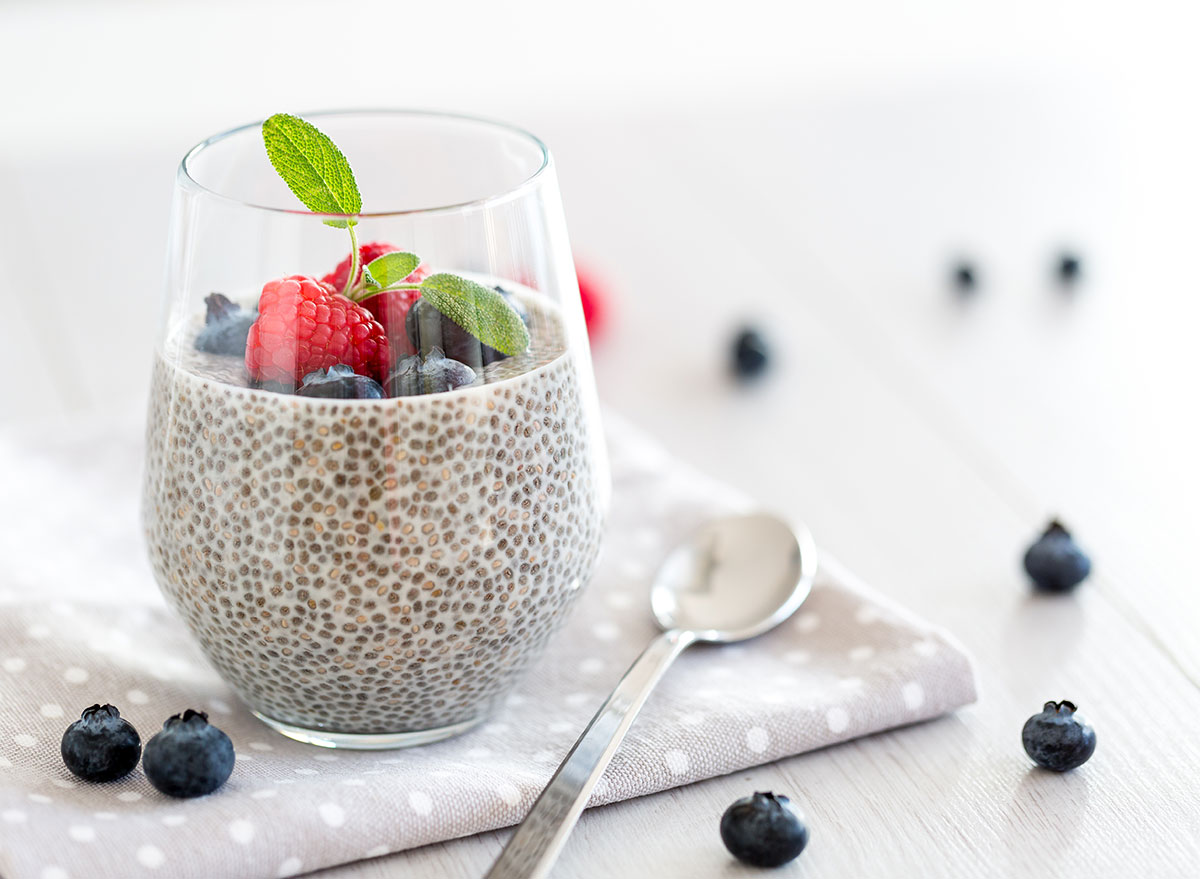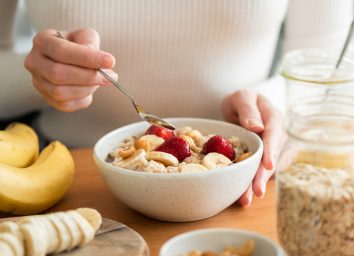One Major Side Effect of Skipping Breakfast, New Study Says
How many times did you hear that breakfast is the most important meal of the day while growing up? Chances are, too many times to count. However, new research out of The Ohio State University suggests that old saying holds some truth.
The study, which was published in the journal Proceedings of the Nutrition Society, found that adults who skip breakfast are more likely to miss out on several key nutrients and make unhealthier choices throughout the day.
After analyzing data from more than 30,000 American adults, it became clear that those who skip breakfast are more likely to miss out on calcium from milk, vitamin C from fruit, as well as myriad other vitamins and minerals you'd find in fortified cereals, including vitamin D and iron.
Read on to find out more about what this new study found. And for more, make sure to catch the 7 Best Oat Milk Brands to Buy, According to Dietitians.
Skipping breakfast could be the reason you're lacking key nutrients in your diet.

"Not only are adults who skip breakfast missing out on key nutrients, like vitamins and minerals, but they also are eating more calories, added sugars, and saturated fat," Stephanie Fanelli, MS, RDN, LD, first author of the study and a doctoral student in the College of Medicine at OSU, tells Eat This, Not That!
Not eating a morning meal may have health consequences.

"Over time, this habit could increase the risk for weight gain and chronic diseases like diabetes or cardiovascular disease," she adds.
Currently, calcium, potassium, fiber, and vitamin D are all considered "dietary components of public health concern" for the general U.S. population, as stated in the USDA's most recent dietary guidelines.
And even though those who skipped breakfast reportedly ate larger lunches, dinners, and snacks than those who ate the morning meal, the researchers found that those who skipped breakfast were still more likely to not meet the bottom threshold for certain nutrients.
Breakfast typically contains necessary vitamins and minerals.

"Breakfast is an opportunity to start off on the right foot. The foods commonly eaten at breakfast contain fortified and naturally occurring vitamins and minerals that we eat less of in later meals throughout the day," says Fanelli.
Chris Taylor, professor of medical dietetics at OSU and principal investigator of the study, explains that several nutrients—including folate, thiamin, riboflavin, niacin, vitamin A, and vitamin D—are a product of fortified breakfast foods.
"But there are also many vitamins and minerals that are obtained from whole grains, dairy products, and fruits that are from foods commonly eaten at breakfast," he says, adding that while there may be some foods that crossover between lunch and breakfast, the traditional breakfast often calls for an entirely separate set of foods.
Eating breakfast helps you make better food choices.

The study also found that those who ate breakfast also appeared to make better food choices throughout the day.
"We found that adults who ate breakfast had significantly better diet quality, despite eating more total calories for the day than those who skipped breakfast," says Fanelli. "This tells us that people who ate breakfast made better dietary decisions for the day, not only at breakfast."
So, who's in need of some healthy breakfast recipes? Check out Healthy Breakfast Foods Dietitians Say You Should Be Eating.









